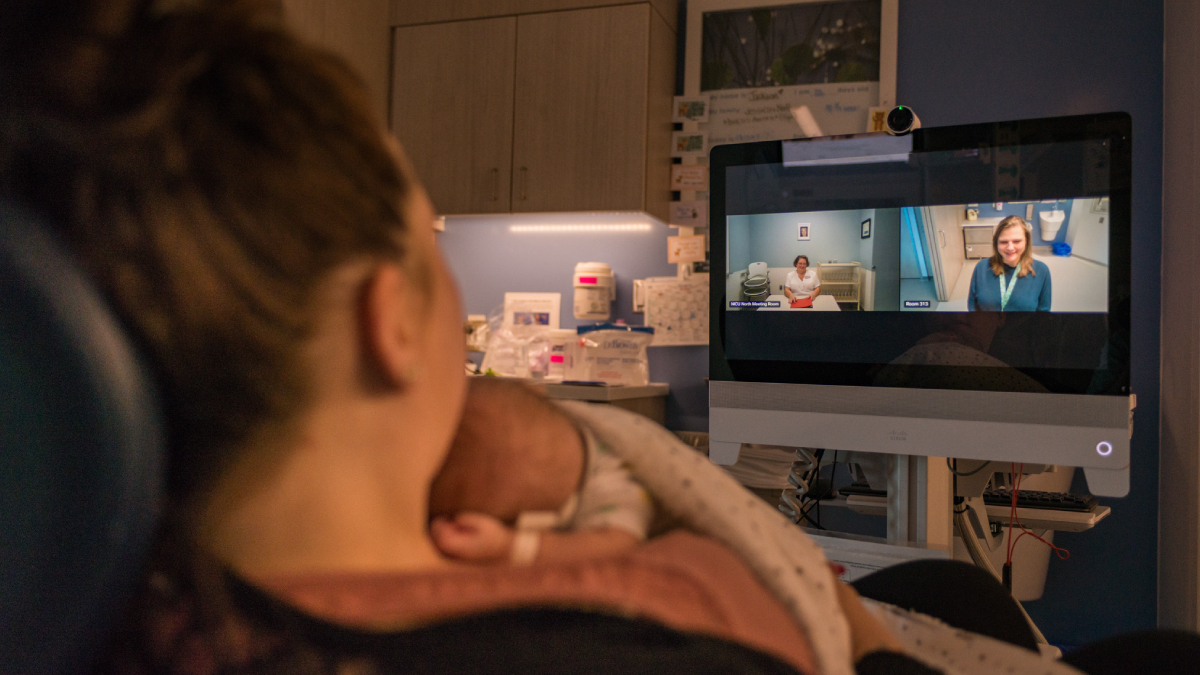KABUL, Afghanistan, July 5, 2007 - Cisco® and Roshan, the leading telecom operator in Afghanistan, today launched telemedicine, a first-of-its-kind solution in Afghanistan to expand healthcare access and delivery across the country. Using broadband technology, wireless video consultation and digital image transfer, the telemedicine project will provide hospitals in Afghanistan with real-time access to specialist diagnosis, treatment and training expertise from abroad.
Roshan has teamed with Cisco, Aga Khan University Hospital (AKUH), French Medical Institute for Children (FMIC) and other technology suppliers to undertake the project. The first phase of the project has already linked FMIC in Kabul, Afghanistan, to AKUH in Karachi, Pakistan, enabling access to a broad array of radiology expertise provided by the hospital. Subsequent phases will link major Afghan regional hospitals to the FMIC, which is being developed as an Afghan center of medical excellence. Eventually, the links can be extended to medical institutions in Europe and North America. The telemedicine project developed in Afghanistan is also seen as a model for addressing healthcare delivery shortcomings in other developing countries where access to medical diagnosis, treatment and training is limited.
"Our government is striving to improve the quality of life of our people, and providing quality healthcare is one of our top priorities. Telemedicine is the perfect marriage of the speed, convenience and cost-effectiveness of wireless and broadband technology. This innovative use of technology and telecommunications to enhance healthcare delivery will help underpin our efforts to meet the nation's other development challenges," said Amirzai Sangin, the minister of communications and information technology, Islamic Republic of Afghanistan.
"At Cisco we believe that quality healthcare is one of our world's most vital needs. That is why we have taken a leadership position to develop technologies, such as our medical-grade network that enables collaboration and the sharing of health information over a highly secure and intelligent infrastructure. We are proud to be a part of this collaborative effort to deliver a telemedicine solution to Afghanistan," said Sam Alkharrat, Cisco managing director, Gulf & Pakistan. Cisco, together with other telecommunications suppliers, is providing digital image transfer systems and video consultation for the project.
"Access to healthcare, especially specialist diagnosis and treatment, remains a critical problem in Afghanistan," said Karim Khoja, CEO of Roshan. "Telemedicine technology provides a solution that has the potential to dramatically expand access to quality medical care for Afghans whose only option previously was to seek specialist diagnosis or treatment overseas. Telemedicine not only immediately enhances access to medical diagnosis and treatment, but it also helps to build and sustain the nation's healthcare capacity through sharing of expertise. Patients will now benefit from the international knowledge without the need to transport specialists to the country."
Telemedicine involves the use of broadband technology that provides high-speed access for the transfer of medical imaging, video, data and voice. Applications include the ability to send real-time X-ray, ultrasound and CT scans for evaluation. The technology also enables e-learning and training through video consultation.
The initial service provided will be teleradiology, the electronic transmission of radiological patient images. There will be an average of 60 to 80 transmissions and 10 to 15 teleconferences between hospitals per month, with the numbers increasing over time. Telemedicine capabilities can gradually be expanded to address different services and procedures including evaluation of tissue samples and the online performance of medical and surgical procedures.
"This project not only represents cooperation between the companies and institutions involved, but is also an important collaborative effort between Afghanistan and Pakistan to address regional healthcare needs," said Firoz Rasul, president of Aga Khan University. "Telemedicine will dramatically expand the healthcare diagnostic and education of health professionals, who will be accessible to the people of Afghanistan and will allow hospitals across the nation to leverage AKUH's world-class medical expertise."
"FMIC is on the front lines of healthcare delivery in Afghanistan, serving per month an average of 4,000 patients in the outpatient department, 3,000 patients in radiology and 14,000 lab tests. Telemedicine is already allowing us to expand the resources at our disposal and draw on the expertise of AKUH for specialist consultation, second opinions and treatment input, resulting in speedier diagnosis and treatment and better outcomes for patients," said Kate Rowlands, general director, FMIC. "As the project expands to Afghanistan's regional hospitals, patients across the nation, regardless of their socioeconomic status, will benefit from the combined expertise and resources of FMIC and AKUH."
Roshan has spearheaded development of the Telemedicine project from initial conceptualization through implementation as part of its ongoing commitment to serving as a catalyst for the reconstruction of Afghanistan.
About Roshan
Roshan (Telecom Development Company Afghanistan Ltd) is Afghanistan's leading Telecom Operator, with a countrywide network of 180 cities and towns. Roshan is owned by an international consortium made up of the following shareholders: The Aga Khan Fund for Economic Development (AKFED) - 51%, Monaco Telecom International (MTI), a subsidiary of Cable & Wireless - 36.75%, MCT Corp - 12.25%. Roshan directly employs more than 900 people and provides indirect employment to more than 20,000 people. Roshan has invested over US$ 260 million in Afghanistan and is the country's single largest investor and tax payer contributing approximately 6% of the Afghan Government's overall domestic revenue. Roshan is deeply committed to Afghanistan's reconstruction and socio-economic development.
About the Aga Khan Development Network
The Aga Khan Development Network, which has been supporting humanitarian assistance and rehabilitation in Afghanistan since 1995, works for the common good of all citizens, regardless of their gender, origin or religion. In all its activities, AKDN is guided by Islam's ethic of compassion for those less fortunate. At the same time, the Islamic ethic discourages a culture of dependency, lest it undermine a person's dignity. AKDN's ultimate aim, therefore, is to help the poor achieve a level of self-reliance whereby they are able to plan their own livelihoods and help those even more needy than themselves. Its programs in Afghanistan come under a comprehensive development agreement signed by His Highness the Aga Khan and President Hamid Karzai.
About Aga Khan University Hospital
Aga Khan University Hospital in Karachi is committed to providing the diagnosis of disease and team management of patient care. These facilities are backed up by highly specialized doctors and nurses as well as quality support services. The Hospital's multidisciplinary approach to diagnosis and care ensures a continuum of safe and high quality care for patients.
About French Medical Institute For Children (FMIC), Kabul
FMIC focuses on its missions of providing quality care, being accessible to all sections of society, upgrading the human capacity within Afghanis and providing a model for sustainability. FMIC has established itself as a reputable hospital delivering high quality care for children. Volumes have continued to soar; in 2006, FMIC served 1,280 inpatients and 23,000 outpatients in the clinics in one full year and already in the first five months of 2007, it has seen 987 inpatients and 13,365 outpatients in clinics, growths of 85% and 39% respectively. Pediatric cardiac surgery has been introduced for the first time in Afghanistan and over 170 cases done to date. Sophisticated orthopedic and general surgery cases are being performed regularly. Laboratory at FMIC is being monitored regularly for quality for its hematology/clinical chemistry testing and over 70 tests are being done on-site, with other tests being sent to Karachi. Radiology services include a CT Scan, general radiography and ultrasound.





